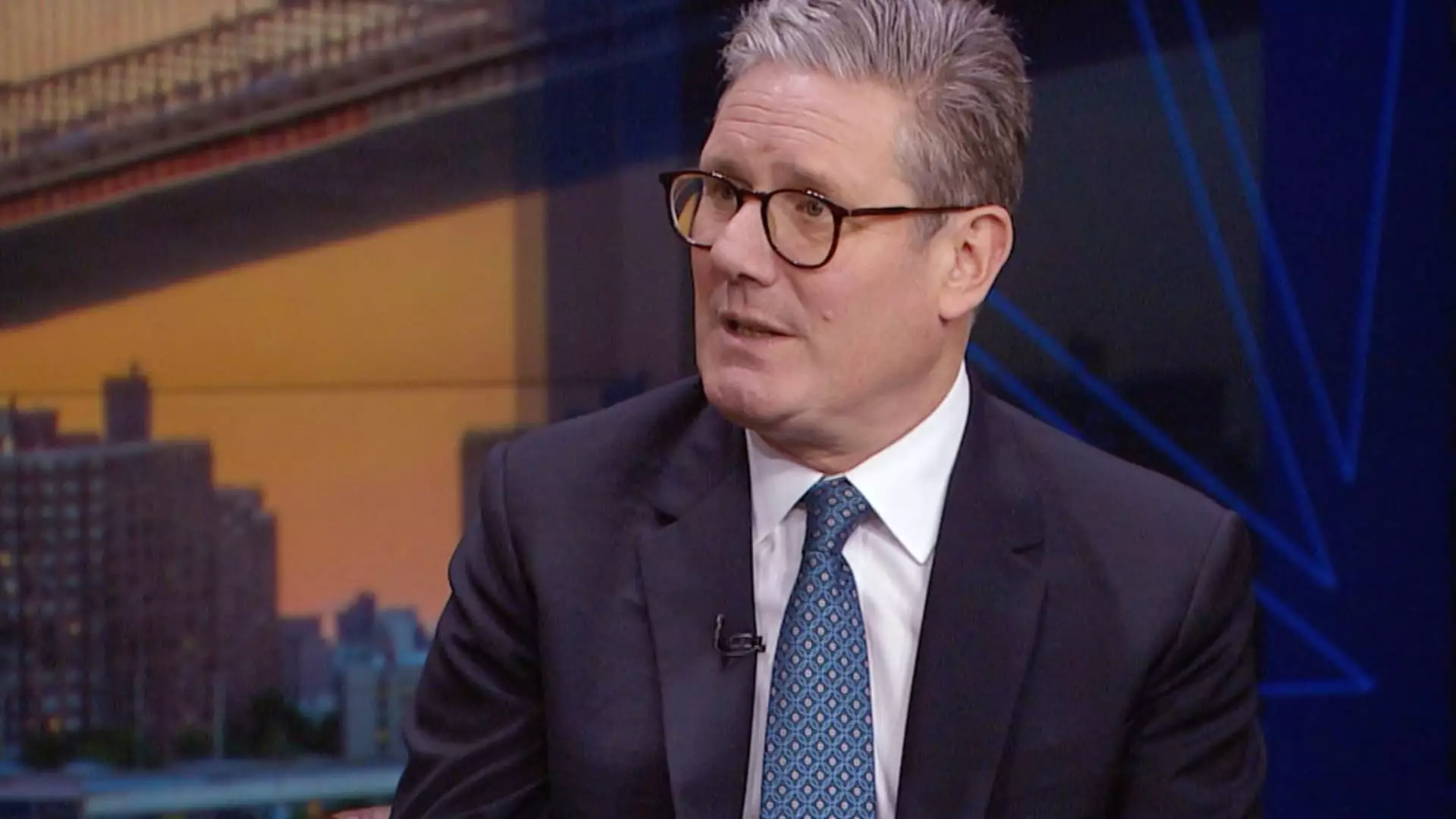The United Kingdom finds itself at a crossroads, characterized by an urgent need for economic revitalization. Under the leadership of Prime Minister Keir Starmer and his Labour government, the country aims to attract substantial investments from major American banks and technology corporations. Starmer asserts that the government’s primary focus is wealth generation, emphasizing a balanced approach that supports both businesses and workers alike. This dual commitment marks a significant shift in Labour’s traditionally pro-worker stance, illustrating a more inclusive economic strategy.
In a recent exclusive interview, Starmer shared his ambitious vision for the UK, noting his administration’s commitment to fostering an environment conducive to growth and innovation. The Labour party’s resurgence, following 14 years of Conservative dominance, brings with it an imperative to address the stagnation that has plagued the UK economy. By embracing a pro-business agenda, Starmer intends to revitalize sectors critical to economic stability.
While attending the United Nations General Assembly in New York City, Starmer engaged with key business figures, including the leadership of Bank of America, Citi, and BlackRock, among others. This engagement is indicative of the Labour government’s proactive approach to garner investment, which is vital for economic recovery. Notably, Blackstone’s commitment to invest $13 billion in developing a major data center in the northeast UK underscores the government’s success in attracting foreign capital influx.
Starmer’s enthusiasm for this investment highlights its anticipated impact on job creation and technological advancement. With a projected creation of 4,000 jobs, this endeavor speaks volumes about the UK’s potential to become a hub for data-driven technologies and artificial intelligence, signaling a future where economic growth is not only a possibility but an expectation.
However, the path to economic revitalization is fraught with challenges. The newly elected government quickly identified a staggering £22 billion financing shortfall, raising eyebrows about fiscal management and the country’s economic health. Former Finance Minister Jeremy Hunt voiced concerns over Labour’s financial strategies, branding them as “troubling.” Indeed, the financial landscape is complex, with rising criticisms emerging about Labour’s economic assessments and proposed tax reforms, namely the contentious non-domiciliary tax regime.
Starmer’s narrative, however, emphasizes stabilization over negativity. He acknowledges the difficult choices that lay ahead, particularly as his government prepares to unveil its budget proposal, which is scheduled for October. The dual pressures of maintaining public support while implementing tough fiscal measures require a delicate balance, one that Starmer insists is necessary for long-term economic health.
Despite ambitious plans, internal discord surfaced during Labour’s Annual Conference when Starmer faced backlash over proposals to alter financial assistance for pensioners. In a symbolic vote, the party rejected changes to the winter fuel allowance, exposing cracks in unity regarding fiscal prudence versus social safety. Starmer’s justification for these potential cuts—to stabilize the economy—reveals the tension between fiscal responsibility and electoral popularity.
One of the highlights of the UK pension system, known as the “triple lock,” ensures that retirees receive a raise based on inflation, earnings growth, or a set percentage increase, whichever is highest. By framing his argument around sustaining this system, Starmer aims to bolster public confidence in his leadership while conveying the necessity of tough fiscal decisions.
The United Kingdom stands on the cusp of economic transformation, driven by a government eager to energize investment and promote growth. Starmer’s approach signifies a departure from previous administrations, navigating the thin line between fostering business relationships and maintaining social welfare. As the Labour government prepares to confront fiscal challenges head-on, the upcoming budget, accompanied by firm strategic responses, will ultimately determine the success of these endeavors.
For the UK, the journey ahead is not merely about attracting foreign investment; it’s about reconstructing a robust and inclusive economy that serves all its constituents. Whether Starmer’s vision can transcend the existing economic hurdles remains to be seen, but the ambition displayed thus far suggests that hope persists amidst the challenges.


Leave a Reply